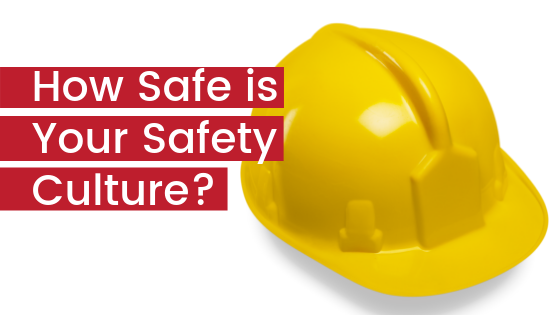How safe is your safety culture? We’re very used to talking about safety in the physical sense, but it’s only relatively recently that there has been more focus on the psychological concept of safety. Even though psychological safety is quite the buzz word these days, if you were to ask your teams or leaders what it means to them, you’ll probably get very different answers.
What is Psychological Safety?
The definition of psychological safety is ‘a belief that one will not be punished or humiliated for speaking up with ideas, questions, concerns or mistakes.’
It’s a concept that we would all like to think we have high levels of, but chances are if you were to ask your teams how they would rate it, it may not score as high as you’d like.
The reason for the disparity in potential scores in psychological safety is that everyone has their own past experiences around it, their own negative triggers and their own subjective history. When you have so many different versions of reality within one team, it takes a conscious and concerted effort to create the levels of psychological safety you want. Add to that the complexity of communicating with contractors, visitors and of dealing with micro-cultures within one site, then it won’t be clear cut.
If you manage a team it’s worth asking yourself about the perceived level of safety. If blame, judgement or silos exist, then safety won’t. If people aren’t bringing their real selves to work, or if they are holding back and not speaking up or out, then safety doesn’t exist.
Why Would we Want Psychological Safety Within our Teams?
Google did a famous study on building the perfect team and code-named the project Project Aristotle. They found the differentiating factor that made a perfect team was, yep, you guessed it, psychological safety. You can read more about the study here.
The following questions are from Project Aristotle and are ones you can ask yourself or your team to give you a guideline on rating your psychological safety:
Think of a team you work with closely. How strongly do you agree with these five statements?
- If I take a chance and screw up, it will be held against me
- Our team has a strong sense of culture that can be hard for new people to join.
- My team is slow to offer help to people who are struggling.
- Using my unique skills and talents come second to the objectives of the team.
- It’s uncomfortable to have open honest conversations about our team’s sensitive issues.
What Makes a Safe Team?
Amy Edmondson, a Harvard Business School professor claims that the highest performing teams are those that have both psychological safety and accountability, and therefore a ‘climate of openness where people can bring their full selves to work.’ You can watch her Tedx talk here.
What this results in is that teams are not afraid of each other but are a genuine cohesive group, working together, learning together, questioning each other and speaking up and out.
To help you shift your culture of psychological safety, get in touch to run a quick site assessment, or you could introduce some simple yet powerful influencing tools with SafetySPEAK. Call 0420 204 982 or email deborah@deborahkeep.com.

